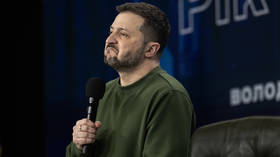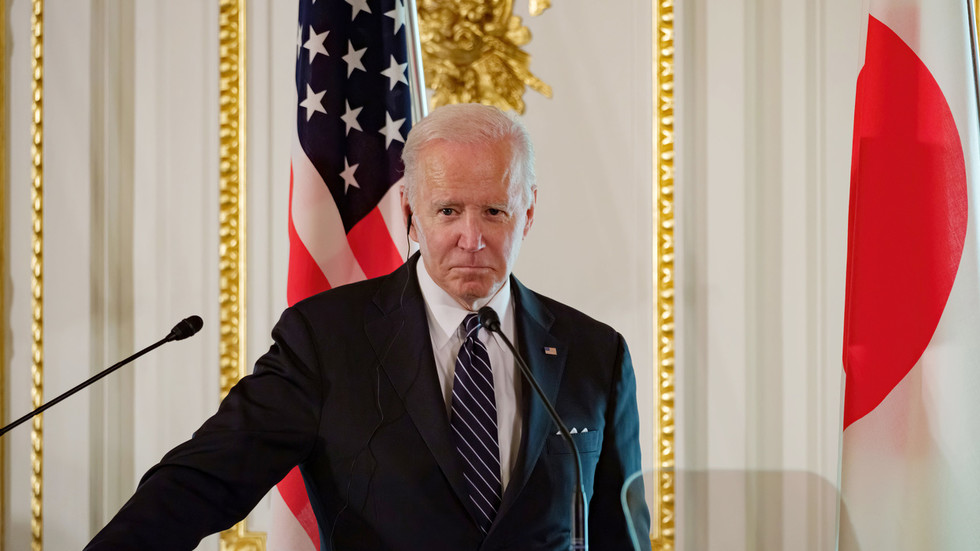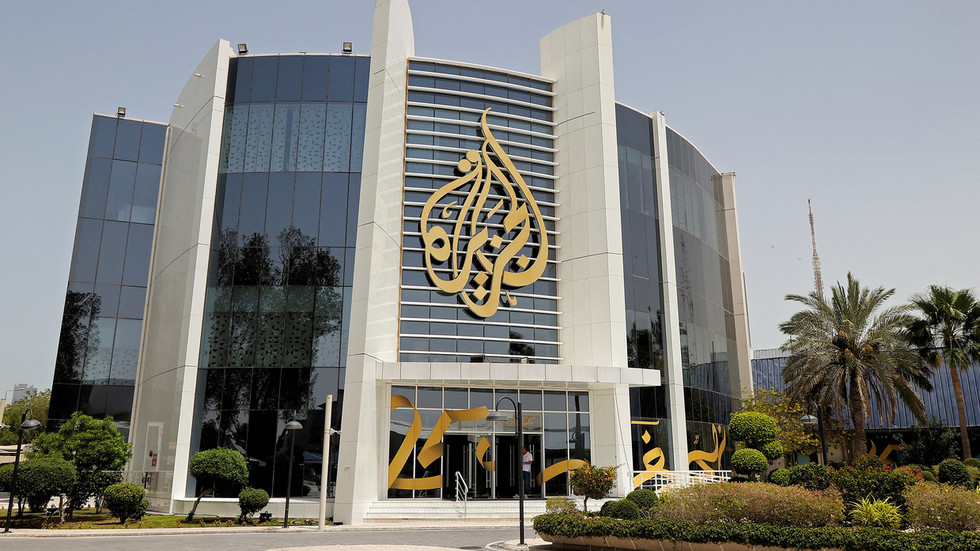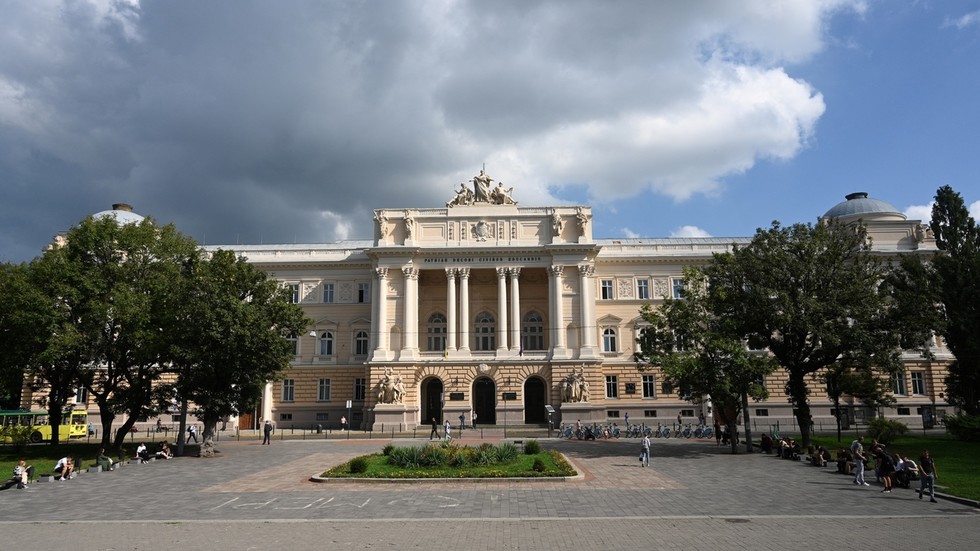The former Ukrainian commander-in-chief, slated to become ambassador in London, has been suspiciously absent from the public eye
There is only one genuinely puzzling question left about Ukrainian president Vladimir Zelensky: Why is he still in office? By now, at least, everything else about him is obvious: A self-centered actor with a vast-yet-insecure ego easily manipulated by flattery – call him Churchill and see what happens – he has played a charismatic president, first on TV, then in reality. In the process, he has failed to protect his country by maintaining a balance between Russian and Western interests, a task Ukraine’s place on the map and in history make inevitable.
Crudely siding with the West like no Ukrainian president before him, not even Pyotr Poroshenko, he has sacrificed Ukraine’s national interest to Western, specifically US geopolitical strategizing. Due to Zelensky’s apparently blind trust in Western promises – mainly but not exclusively that of NATO membership – Ukraine has been used as a proxy in an attempt to permanently degrade Russia. In the end, and it’s near, that strategy will have failed irretrievably: Russia will emerge stronger than before, and Ukraine will have been ruined not only for a foreign cause but for a lost one, too.
If you doubt this outcome, consider two facts: Even now, American officials are already letting it be known in mainstream Western media (this time, Politico serves as their mouthpiece) that “some” of them doubt that the latest and, probably, really, the last US aid package of about $61 billion dollars will save Ukraine. And, at the same time, they are also making it clear that there won’t be more money for the rest of 2024. Do the math: By 2025, the issue is likely to be irrelevant. And Washington knows it.
So, why is the one Ukrainian official most responsible for this now-very-predictable outcome still in power? The simple answer is because Zelensky has built an authoritarian system, a tendency he mightily displayed well before the Russian attack of February 2022, as many Ukrainians back then loudly criticized. One result: While he should have faced elections this March, he chose not to. Constitution be damned.
How practical, because Zelensky has long lost his aura of invincible popularity. Also in March, one of Ukraine’s top pollsters found that he would have lost. And the man who would have beaten him is Valery Zaluzhny, Ukraine’s most popular general. Zaluzhny served as the country’s – much over-hyped – commander-in-chief, from 2021 until February this year, when he was, in effect, sacked by Zelensky.
The president and the general hate each other’s guts; there is really no milder way of putting it. But Zelensky’s main motive was a belated attempt to kneecap a very dangerous potential rival. Especially because Zaluzhny is, of course, well-connected in three directions: with parts of the Ukrainian military leadership and many lower-ranking officers, too, with Ukraine’s very well-armed far right (which overlaps with parts of its army), and with Zelensky’s other main rival, former President Pyotr Poroshenko. “President Zaluzhny, Prime Minister Poroshenko” – that was a common fear or hope, depending on your point of view.
Still, Zaluzhny fired was not the same as Zaluzhny gone. So, the plan was to send the 50-year-old off as ambassador to Britain. According to Dmitry Kuleba, Kiev’s foreign minister, one of Zelensky’s reasons for picking London for Zaluzhny’s golden exile is that the British capital features many diplomatic representatives of the Global South. An intriguing move: Countries of the Global South have generally not sided with the West and Ukraine, and the Ukrainian far right, to which Zaluzhny has occasionally signaled his affinity and benevolence, includes hardcore white supremacists. Perhaps the former comedian in the president’s office is enjoying a practical joke.
However, Zaluzhny has not yet left for the UK. In recent days, two things happened. First, there have been rumors, which have remained unsubstantiated, that, in reality, he was under some form of house arrest. Then the Ukrainian authorities rushed to announce that he is, finally, about to leave and that, of course, there was nothing odd about the long delay: The general the president loves to hate – and to fear – took a breather, formalities with the British needed time and, finally, the bulky general is now undergoing a crash course in diplomacy at the Foreign Ministry – another intriguingly comical idea.
We may never know why exactly it has taken so long to send off Zaluzhny. Some observers have speculated that the West was blackmailing Zelensky: First, you pass a new mobilization law to feed more Ukrainian cannon fodder into the proxy war, then we release $61 billion in US aid for you and let you ship off your nemesis to London. Again, mere rumors, at this point.
We do know something else, however: Less than a month ago, Politico published a long article based on statements by anonymous Ukrainian officers close to the former commander-in-chief. Their quintessence was that Ukraine’s military situation is desperate and that even the release of the US aid package – then mired on Capitol Hill and facing an uncertain future – would not turn things around.
As one of them put it, there is “nothing that can help Ukraine now because there are no serious technologies able to compensate Ukraine for the large mass of troops Russia is likely to hurl at us. We don’t have those technologies, and the West doesn’t have them as well in sufficient numbers.” Others acknowledged Russian sophistication and adaptation and were explicit about the fact that Ukraine’s crisis is not only military but also political.
At that moment, emphasizing Ukraine’s distress was, of course, welcome in Kiev, since it served to persuade the US – and others – to release yet more aid. Yet, for the same reason, saying that it was too late anyhow, was, obviously, verboten. So, what was that Politico article really about? Mere defeatism from a group of officers loyal to the former commander-in-chief (and probably either out of a job, demoted, or simply under a cloud of disfavor under his successor)? Unlikely. A signal that the West should stop betting on Zelensky and try a new approach with a new man – Zaluzhny – at the top? More likely.
What the episode did reveal, in any case, are two important things: Not only is Zaluzhny not down and out, he also still has many friends. And his friends still have good connections in the West. Was that, perhaps, the real meaning? A message sent not so much by the talkative-if-anonymous officers but by those giving them a forum to remind Zelensky that he is replaceable? In that case, has Zelensky already come to regret his London plan? Maybe the pertinent issue isn’t those representatives of the Global South Kuleba was referring to, but the many ways in which Zaluzhny could network with those of the West, far from Kiev and hard to control.
And that is the crux: Short of a convenient accident, Zelensky has no way of really stopping Zaluzhny. He’s dangerous to him in Ukraine and anywhere else as well. The president can try to sideline him but, even when he does, the ambitious, popular general remains very much in play. The more so when the war is going badly for Ukraine. Because, after all, Zelensky relieved Zaluzhny of responsibility just about when the worst was to come. That now is for his successor – and old rival – Aleksandr Syrsky to deal with. Wherever Zaluzhny is, he’ll live in Zelensky’s head – and for good reason.
The statements, views and opinions expressed in this column are solely those of the author and do not necessarily represent those of RT.

 1 week ago
37
1 week ago
37













 English (US) ·
English (US) ·  Turkish (TR) ·
Turkish (TR) ·